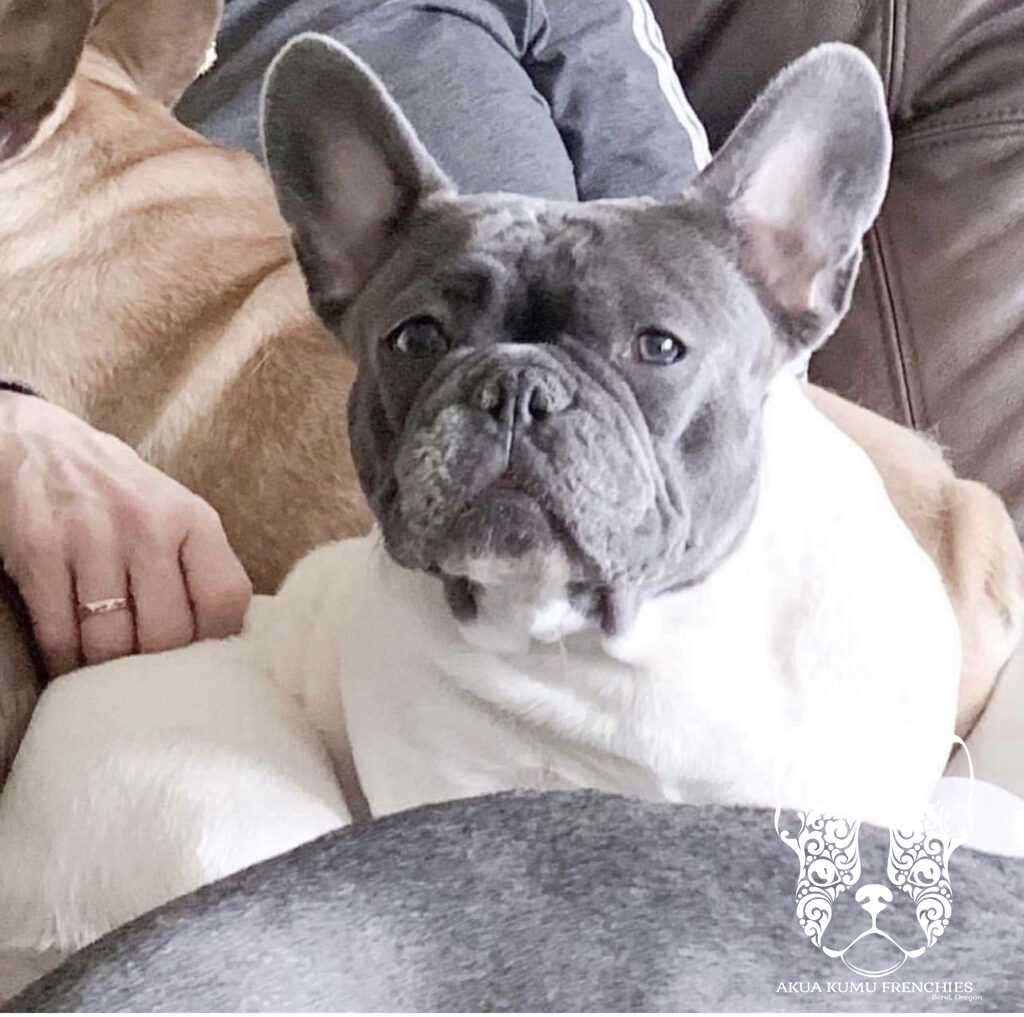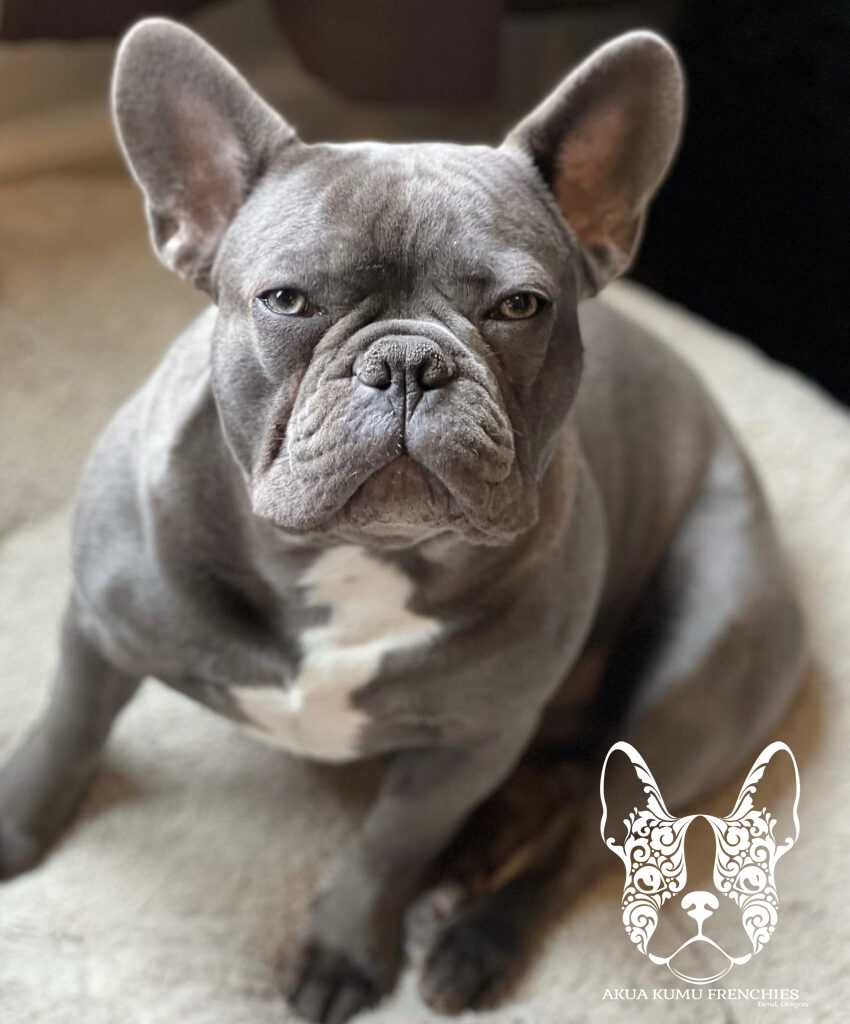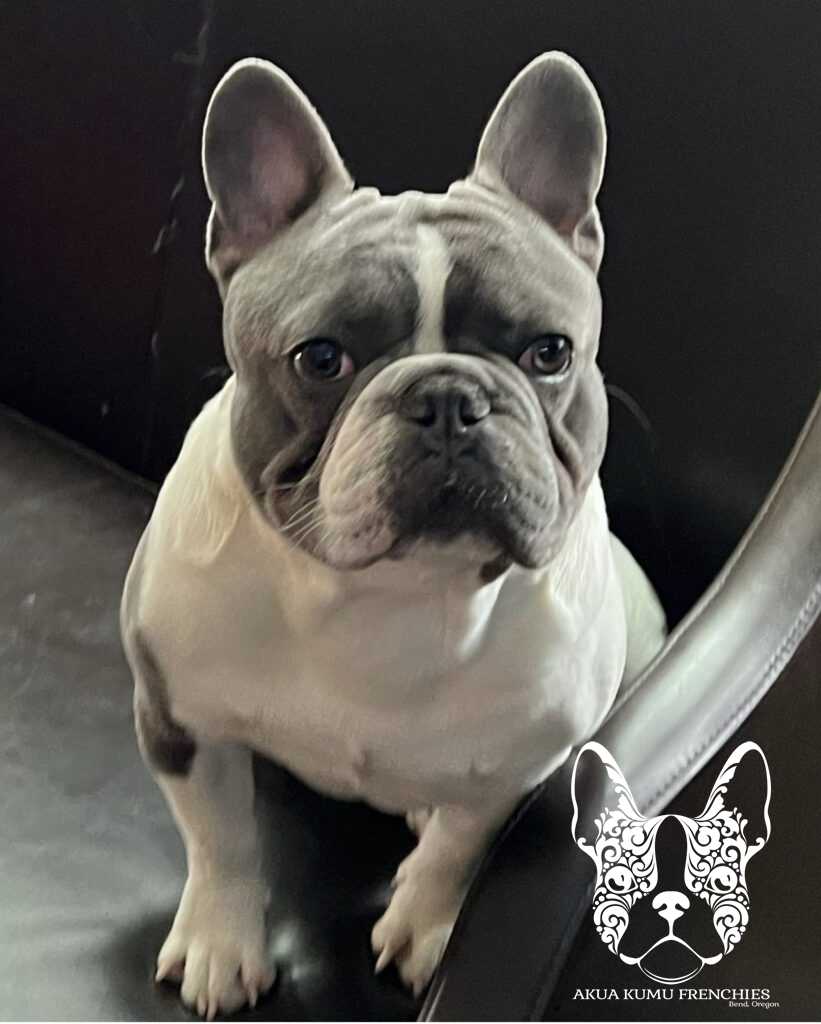Helpful Information for first time buyers
FRENCH BULLDOG INFORMATION:
Do your research on the French Bulldog Breed before you buy.
FRENCH BULLDOG BREED
If you’re a first-time French Bulldog owner, here are some important facts and considerations to keep in mind about this breed:
- Affectionate Companions: French Bulldogs are known for their affectionate and loyal nature. They thrive on human interaction and make excellent companions.
- Low Exercise Requirements: They don’t require as much exercise as some other breeds, but they still need daily walks and/or playtime to stay healthy and mentally stimulated.
- Adaptable to Apartment Living: French Bulldogs are well-suited for apartment living because of their small size and lower exercise needs.
- Social Animals: They tend to get along well with other dogs and pets, but early socialization is important to ensure good behavior.
- Minimal Grooming: French Bulldogs have short, fine coats that require minimal grooming. Regular brushing helps manage shedding.
- Brachycephalic Breed: French Bulldogs have a flat face and short nose, which makes them prone to breathing difficulties, especially in hot weather. Avoid strenuous exercise in high temperatures and be cautious of heatstroke.
- Snoring and Snorting: Due to their flat faces, French Bulldogs often snore and snort. This is normal for the breed and not typically a cause for concern.
- Potential Health Issues: This breed is prone to certain health issues, including hip dysplasia, intervertebral disc disease, and skin allergies. Regular vet check-ups and a healthy diet are essential.
- Dental Health: Due to their brachycephalic nature, they can have dental issues. Regular dental care and chew toys can help maintain oral health.
- Stubbornness: French Bulldogs can be stubborn, so be patient and consistent with training. Positive reinforcement methods work best.
- Frequent Gas: Their flatulence can be quite potent, which is partly due to their brachycephalic anatomy and partly due to their diet. Be prepared for occasional gas.
- Sensitive to Extreme Temperatures: French Bulldogs are sensitive to both extreme heat and cold. In hot weather, provide shade and water. In cold weather, use a dog coat or sweater to keep them warm.
- Ear Care: Their floppy ears can trap moisture and debris, making them prone to ear infections. Regular ear cleaning is important.
- Lifespan: The average lifespan of a French Bulldog is around 10 to 12 years, although some may live longer with proper care.
- Pet Insurance: Given the breed’s susceptibility to certain health issues, consider investing in pet insurance to help cover potential medical expenses.
- Emotional Support: French Bulldogs often form strong emotional bonds with their owners and may suffer from separation anxiety if left alone for long periods. Provide mental stimulation and companionship.
- Food Allergies: Some French Bulldogs may have food allergies and/or food sensitivities, so monitor their diet for any adverse reactions and consult with your vet if needed.
Remember that while French Bulldogs can be adorable and endearing pets, they also come with specific care requirements and potential health considerations. It’s essential to be well-prepared and committed to meeting these needs to ensure a happy and healthy life for your furry friend.

THINGS TO CONSIDER BEFORE YOU BUY
Owning a French Bulldog can be a rewarding experience, but it’s important to be prepared for the unique needs and characteristics of this breed. Here are some useful tips for new French Bulldog owners:
- Research the Breed:
- Learn about the breed’s characteristics, temperament, and potential health issues. French Bulldogs are known for their friendly and affectionate nature but can also have specific care requirements.
- Find a Reputable Breeder:
- If you’re getting your Frenchie from a breeder, choose one who is reputable and responsible. Ask for references, visit the breeder’s facilities, and ensure the puppies are well-cared for.
- Prepare Your Home:
- Puppy-proof your home by removing hazards and ensuring there are no small objects or toxic substances within their reach. French Bulldogs are curious and may chew on things.
- Socialization:
- Start socializing your Frenchie early with other dogs and people to ensure they grow up well-adjusted and friendly. This helps prevent behavioral problems later on.
- Obedience Training:
- Enroll in a puppy obedience class to teach basic commands and proper behavior. French Bulldogs are intelligent but can be stubborn, so consistent training is essential.
- Crate Training:
- If you work or spend a lot of time away from your home consider crate training your Frenchie. It provides a safe space for them and helps with housebreaking. Make sure the crate is comfortable and not used for punishment.
- Regular Exercise:
- French Bulldogs don’t require as much exercise as some other breeds, but they still need daily walks and/or playtime. Be mindful of their brachycephalic (flat-faced) nature, which can make them more susceptible to overheating.
- Grooming:
- French Bulldogs have short coats, but they still shed and require regular brushing to remove loose hair. Clean their facial wrinkles daily to prevent skin issues.
- Health Care:
- Stay on top of your Frenchie’s health by scheduling regular vet check-ups and vaccinations. Be aware of common health issues in the breed, such as hip dysplasia and respiratory problems.

INSTALLING STEPS FOR YOUR FRENCHIE
Providing steps or ramps for your French Bulldog to access high areas like beds or couches can be a excellent idea for several reasons:
1. Safety: French Bulldogs are a small breed with short legs, which makes it difficult for them to jump onto high surfaces. Attempting to jump can lead to injuries like sprained joints or slipped discs. Using steps or ramps can help prevent such injuries.
2. Preventing Joint Stress: French Bulldogs are prone to joint issues, such as hip dysplasia. Jumping down from high surfaces can put stress on their joints, exacerbating these problems. Steps or ramps can help them navigate these heights without straining their joints.
3. Aging Dogs: As French Bulldogs age, they may develop mobility issues. Steps or ramps provide a gradual incline, making it easier for older dogs to access elevated surfaces without struggling or risking injury.
4. Comfort: French Bulldogs love to be with their human companions, and they often enjoy lounging on the bed or couch. Having a means for them to join you on these surfaces can enhance their comfort and quality of life.
When introducing steps or ramps to your French Bulldog, keep these tips in mind:
- Training: Train your dog to use the steps or ramp with patience and positive reinforcement. Encourage them with treats or toys to make it a positive experience.
- Proper Sizing: Ensure that the steps or ramp are the appropriate size and stability for your French Bulldog’s size and weight.
- Location: Place the steps or ramp in a convenient location that allows your dog easy access to their favorite spots.
- Maintenance: Regularly check the steps or ramp for wear and tear. Keep them clean and in good condition to prevent accidents.
By providing steps or ramps for your French Bulldog, you can make their life safer and more comfortable, especially when it comes to accessing high areas like beds or couches.

CONSIDER PURCHASING INSURANCE
Purchasing pet insurance before picking up your new pet, whether it’s a puppy, kitten, or adult animal, can be a good idea for several reasons:
1. Pre-existing Conditions: Pet insurance typically doesn’t cover preexisting conditions. By getting insurance before bringing your pet home, you ensure that any future health issues that develop will likely be covered, as they won’t be considered preexisting.
2. Cost Management: Veterinary care can be expensive, especially if your pet faces a serious illness or injury. Pet insurance can help you manage unexpected costs and ensure you can provide the necessary medical care without financial strain.
3. Peace of Mind: Knowing that you have insurance in place can provide peace of mind. You won’t have to make difficult decisions about your pet’s health based solely on financial considerations.
4. Early Coverage: Some pet insurance policies have waiting periods before coverage begins. By getting insurance early, you can ensure that your pet is covered as soon as possible.
5. Preventive Care: Some pet insurance plans cover preventive care, such as vaccinations, wellness exams, and dental cleanings. This can encourage you to stay proactive about your pet’s health.
6. Customizable Plans: Pet insurance plans come in various forms, so you can choose a plan that suits your budget and your pet’s needs. Some plans cover only accidents and illnesses, while others include routine care.
7. Lifetime Coverage: Having insurance from the beginning of your pet’s life can ensure continuous coverage throughout their lifetime, even as they age and potentially develop chronic conditions.
Before purchasing pet insurance, it’s essential to research different providers, understand their coverage options, exclusions, deductibles, and premiums. Compare plans to find one that aligns with your pet’s needs and your budget. Additionally, make sure to read the policy carefully to understand what is covered and what isn’t.
While pet insurance can be valuable, it’s also important to maintain a savings fund for your pet’s care, as insurance may not cover all expenses, and there may be deductibles or limits on coverage. Ultimately, having both insurance and savings can provide comprehensive financial security for your pet’s well-being.

Interested in meeting our current litter?
Contact Margaret Arvidson



































